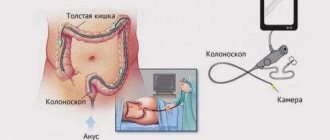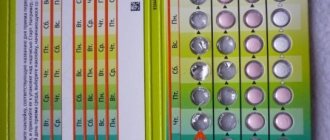The symptoms of premenstrual syndrome and pregnancy symptoms are very similar to each other. All changes, both during pregnancy and premenstrual syndrome, occur due to the active synthesis of hormones. In both cases, the woman’s well-being does not change for the better.
Feeling a nagging pain in the lower abdomen, experiencing unreasonable irritation, a woman already approximately knows that any day now she can expect the onset of her period. And then a day passes, then the second, then the third day, but the much-anticipated event does not occur, all the signs of menstruation are there, but they do not begin.
Causes
In some cases, similar symptoms of pregnancy may be mistaken for symptoms of the onset of menstruation, especially if there is a delay. In a situation where there is PMS, but no menstruation, you can suspect a hormonal imbalance has occurred.
The question arises: what should a woman expect with such symptoms, pregnancy or hormonal imbalance? As soon as the egg is fertilized, a mechanism is activated that prevents the onset of new periods.
Now there will be no menstruation until the baby is born. But sometimes an already pregnant woman suddenly discovers spotting, which vaguely resembles what happens during menstruation, but is distinguished by its scarcity.
In fact, these discharges have nothing to do with menstruation. At this time, the fertilized egg tries to implant into the wall of the uterus. During this process, micro-tears may occur, which are responsible for the appearance of brownish spotting.
Most often, such discharge appears only once, and sometimes several times. But in any case, all discharge will stop as soon as the egg is fixed in the uterus. In this case, the woman should consult a doctor. After the discharge stops, it will immediately become clear that this is not menstruation; the discharge is not quite the usual color. But the scarcity of these secretions should be even more confusing.
In order to better understand the issue, it is necessary to find out what the actual signs of pregnancy are, and what are the signs of the onset of menstruation. Since it is very important to distinguish the first from the second, if only because during pregnancy it is advisable to consult a doctor early and register.
It’s worth saying right away that the body’s reaction to approaching menstruation is always individual. Some of the symptoms may be present, some not. In this situation, we will consider the averaged impersonal option.
Stress and depression
Women are very sensitive to various mental shocks. All kinds of quarrels, conflicts with colleagues or superiors, and even family scenes can affect the menstrual cycle. Frequent emotional shocks will possibly lead to slight delays - up to several days. Also, girls of student age do not have periods regularly. The need to combine work and study, chronic lack of sleep, extreme fatigue, exams and worries about grades can negatively affect the cycle. Severe stress should not be excluded from this list. Is it possible to miss periods due to a fracture or injury, an extreme situation experienced, or the death of a loved one? Of course yes, because in a state of severe stress, defense mechanisms are activated in the body, which can lead to a slight change in the cycle. This is due to a female characteristic, since in critical and unfavorable environmental conditions nature warns the girl against the possible appearance of offspring.
Signs of menstruation
First of all, before her monthly period, a woman begins to suffer from various unpleasant sensations. This includes severe aching pain in the lower back and abdomen. Sudden leg cramps. Some women experience aching pain in their joints.
At first, young girls whose menstruation has just returned to normal mistake abdominal pain for intestinal problems. But it won’t be long before they begin to skillfully distinguish one from the other.
Mood swings. This is another very characteristic sign of approaching menstruation. Sometimes women notice a change in taste, about a week before the start of menstruation. This is mainly expressed in cravings for sweets and starchy foods. After the start of menstruation, such cravings either weaken or disappear.
Some women experience rashes on their face in anticipation of their period. Hair quickly begins to get oily. A girl with an even and good-natured character suddenly becomes angry and irritable for no apparent reason.
Her close circle has to feel this moment especially acutely. At the same time, sleep disturbances may occur. During this period, intense headaches may appear. It is difficult to identify all the symptoms of PMS in women; for this, a woman will have to observe herself for a long time; certain nuances may arise when her period is delayed.
Symptoms and color of menstruation
A few months before her first menstruation, a girl may notice traces of discharge on her underwear, which she had not seen before. They are usually white or transparent and odorless. If this discharge is accompanied by itching, burning or an unpleasant odor, you should visit a gynecologist as soon as possible, since this should not normally occur.
- tearfulness;
- apathy;
- aggression;
- frequent mood changes;
- headaches, migraines;
- nagging pain in the lower abdomen.
The main symptom of the onset of menstruation is dark red vaginal discharge with a characteristic odor. Sometimes the blood released is dark brown in color. You shouldn’t be afraid of this, because at puberty girls rarely ovulate, which means that the dark color of the secreted blood is associated with this.
Signs of pregnancy
Now let's look at what happens to a woman in the first weeks of pregnancy. Pregnant women also experience drowsiness. She, just like before her period, becomes irritable. She experiences mood swings.
It turns out that it is very difficult to feel the difference between the two states. But there is a difference between these two conditions, albeit minor. Moreover, a pregnant woman will very soon begin to experience toxicosis, and all doubts will immediately disappear.
If a woman listens carefully to herself and analyzes her condition in the period preceding her period and on the first day of her period, she will quickly feel the difference. For example, when pregnancy occurs, some usual symptoms will be absent.
For example, there may not be a headache. To determine the difference, a woman must know her body well. But there is a small category of girls and women who, on the eve of menstruation, do not experience any discomfort at all.
It’s just that one day they have discharge that completely coincides with what they see every month. In this case, the difference between the onset of menstruation and pregnancy will be obvious. Especially if a woman suddenly begins to suffer from headaches and begins to get irritated at every occasion.
It is much easier for those women who systematically track their basal temperature. They know well that if the temperature rises a few degrees and then returns to its normal value, menstruation will begin soon.
An increase in basal temperature is a symptom of ongoing ovulation. If the elevated temperature persists for a long time, then pregnancy can be assumed.
But it’s worth mentioning right away that there is a large amount of error in this method of determining the timing of the onset of pregnancy. Basal temperature can sometimes increase for reasons that have nothing to do with pregnancy and the ovulation process.
Therefore, it is best to take into account basal temperature indicators, but not draw far-reaching conclusions based on them. Not every woman has the opportunity to measure her basal temperature every morning for several months.
Why is a visit to the doctor necessary?
The first and only thing you should do if your period is late is to visit a gynecologist.
The fact that menstruation does not start on time does not threaten the body in any way. But the reasons why the delay occurs can be very dangerous. Timely identification of the problem is the key to a speedy recovery and the absence of disastrous complications. Under no circumstances should you rely on your own speculation about the absence of menstruation. Leave it to a specialist. Only he can be trusted to make a diagnosis. Only a doctor will select the treatment that is right for you. And perhaps the gynecologist will redirect you to an endocrinologist or oncologist.
Detection in the early stages of pregnancy is also incredibly important for the health of the expectant mother and her baby. Without knowing about pregnancy, you can easily harm both yourself and the fetus.
You shouldn’t apply all the diagnoses to yourself at the same time, but you shouldn’t take your health lightly either. Listen to your body and trust your doctor.
Differences
Why do some symptoms of early pregnancy and premenstrual syndrome coincide? In the first case, in both cases there is a hormonal change in the body. The hormonal background begins to change little by little in the first hours after fertilization has occurred.
The changes occurring in the mammary glands are very revealing. The breasts become very sensitive and increase slightly in size. In some cases, touching them can be extremely painful.
Cramps and pain in the lower abdomen may also be present during pregnancy. Some women experience morning sickness very quickly. During pregnancy, the urge to urinate may become more frequent. But the same symptom is also observed with cystitis, so it must be taken into account, but only if other signs of pregnancy are present.
Another characteristic sign of pregnancy is an increased sense of smell. Many odors that were previously undetectable become more intense and lose their appeal.
This change can be easily seen in the example of perfume. If previously your favorite subtle perfume aroma evoked only positive emotions, then with the onset of pregnancy it can become very strong. The hormone estrogen is responsible for enhancing the sense of smell. At this time, it is present in large quantities in the blood.
Pathologies
Many infectious diseases have symptoms such as aminorrhea, these include: - tuberculosis, - female alcoholism, - typhoid, - liver diseases.
Aminorrhea can be caused by disorders of the adrenal glands, diseases of the thyroid gland, a tumor, a cyst, in addition, sudden aminorrhea can occur as a result of stopping taking certain hormonal or contraceptive medications and even an incorrectly placed IUD. Emergency contraception based on hormonal drugs, intoxication associated with smoking, taking drugs or working in hazardous industries, abortion or miscarriage are all causes of secondary aminorrhea.
Aminorrhea in most cases is treated with medication, the majority of drugs are hormonal, and therefore are prescribed by doctors strictly according to indications. Self-medication is dangerous.
In any case, any violations require a thorough examination by a gynecologist, taking tests, conducting ultrasound examinations, clarifying lifestyle, factors preceding the onset of the disease, and drawing up a general clinical picture.
How to solve the problem associated with a delay in menstruation
To begin to solve any problem, you must first find out the reasons for its occurrence. In this case, you should first contact a gynecologist and undergo an examination. If, after visiting him, no gynecological diseases were found and no contraceptive pills were taken, then most likely the reasons are excessive activity, climate change, a new diet, or the occurrence of stressful situations.
Most likely these are signs of gynecological diseases.
Why don't I get my period?
The countdown of the menstrual cycle begins on the first day of menstruation. Normally, it lasts 28 days (plus or minus 5-7 days, everything is individual here). Thus, there is no cause for concern if its duration is from 21 to 35 days. And yet, the more serious factor is not the duration of the cycle, but its regularity.
So what is the menstrual cycle? In its first half, preparation for ovulation or egg maturation occurs. Progesterone is produced, which is necessary for the fertilization of the female cell and its penetration into the uterine mucosa. If conception has occurred, then the absence of menstruation is the norm, which will last until delivery or the end of breastfeeding.
If fertilization does not occur, the amount of progesterone decreases, the uterine mucosa is gradually torn away from the uterine walls and comes out. This is menstruation.
No periods. How dangerous are delays?
A delay in menstruation itself is not as dangerous as the reasons that can delay it. Very often, dangerous diseases can be hidden behind this. An ectopic pregnancy can also cause a missed period or a negative pregnancy test.
Only an ultrasound will help identify it; if this is not done in time, the pathology will lead to pipe rupture and severe consequences.
Despite the problems described above, among other things, the reason for the absence of menstruation may be the onset of a long-awaited pregnancy. And only an experienced specialist will answer the exact question, yes or no.
How to induce menstruation using traditional methods
- The condition of ectopic pregnancy.
- Physical exhaustion, low weight.
- Gluttony.
- Ovarian atheroma.
- Menopause period.
- Neoplasm in the brain.
- Excess weight.
- Stressful situations.
- Dysfunctional bleeding.
- Venereal diseases, etc.
As a rule, the absence of menstruation is explained by serious endocrine and gynecological diseases and requires immediate treatment. Without first consulting a doctor, inducing menstruation using folk remedies is very dangerous. First of all, you need to find out your exact diagnosis.
Waiting for your period can be quite nerve-wracking. This is especially true for unwanted pregnancies. Also, on the eve of a vacation or an important event, you want to postpone or, on the contrary, speed up the physiological process. This can be done in quite a few different ways.
Oral contraceptives are the easiest way to speed up the arrival of menstruation.
It is enough to stop taking the pills a few days before the chosen date and menstruation will begin. But you need to be quite careful with this, since arbitrary withdrawal of hormonal drugs can cause uterine bleeding
Some women resort to traditional medicine to induce menstruation. But the benefits of these activities are not only ineffective, but sometimes can even be quite dangerous.
The most popular effective methods of “inducing” menstruation are as follows:
- Hot bath. They say that hot water can cause a rush of blood to the genitals. Many also advise eating a piece of aloe at this time or drinking water with a couple of drops of iodine.
- Impact dose of ascorbic acid.
- Elephant root (take 50 g.)
- Decoctions of various herbs and eating a lot of parsley
Before solving a problem with menstruation on your own, you should make an appointment with a doctor and ask the following questions:
- how can you find out the reason why there are no periods and no pregnancy;
- do you need to undergo a special examination or can you get by with an oral consultation;
- what tests need to be taken
Usually an experienced specialist will show and tell you in detail what needs to be done.
Ovulatory abnormalities
If pregnancy is excluded, the reason why menstruation does not occur is amenorrhea, which is a disease characterized by delayed menstruation. If ovulation is disrupted, the egg may mature late or not mature at all in a given menstrual cycle. Such anomalies can arise due to the presence of acute inflammatory processes in the female genital organs and the woman’s body as a whole; infectious and somatic diseases (rheumatism, tuberculosis, liver disease, heart disease); nervous breakdowns, stress, severe fatigue; hormonal imbalance. These factors are often interrelated.
What is the norm for delayed menstruation if there is no pregnancy?
Why there are no periods - experts identify various reasons besides pregnancy . First of all, menstrual irregularities are typical for young girls at the onset of their very first menstruation, as well as for mature women before menopause. In this case, the break between them can be up to 6 months.
Why no periods? Reasons other than pregnancy will be discussed below. Read the popular article on the site: Menopause in women: symptoms, age-related characteristics, treatment with effective methods.
The first sexual intercourse also provokes cycle deviations, as it is stressful for the young body. Normally, the deviation occurs from 2 to 5 days.
In the postpartum period, the absence of menstruation is explained by breastfeeding and can reach 3 years. After a caesarean section, menstruation should occur within 2-3 weeks after the operation, and the interval between them cannot be more than 2 months.
If the functioning of the female reproductive system is disrupted and the cycle deviates for more than 14 days, gynecologists recommend an examination to determine the provoking factors.









